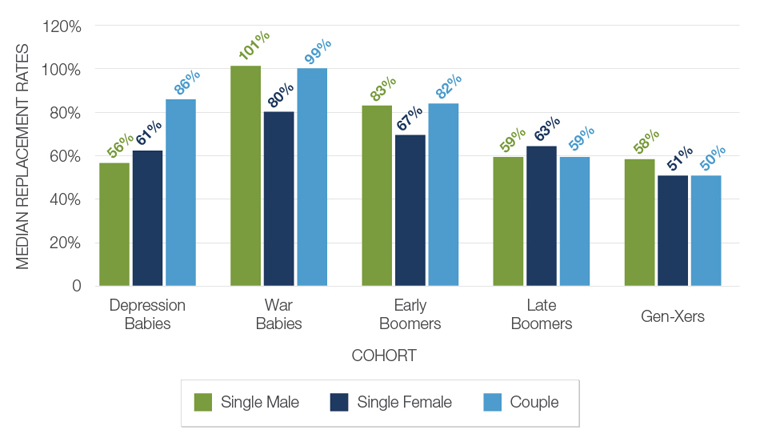Replacement Rates by Cohort and Household Type
Late Baby Boomers and Gen-Xers do not have adequate resources for retirement and facing possible downward mobility.

Source: Panel Study of Income Dynamics
Note: The replacement rate calculations project how much wealth individuals and families may have upon retirement at age 65 given current income levels and wealth accumulation. A replacement rate of 100 percent means that an individual or family would have exactly the same money in retirement that they had preretirement, a value below 100 percent means less, and a value above 100 precent means they would have more. There is debate about what an ideal replacement rate would be, but financial planners suggest that individuals should ideally be able to replace 70 to 100 percent of their annual income.






